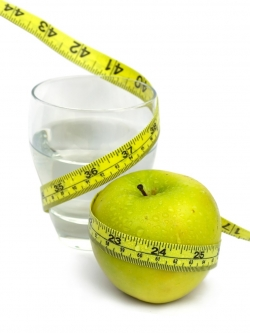 You will no doubt be fully into your pre-season training programmes by now, training hard but also remembering to fully rest and recover. I would like to focus my latest blog on your pre-season diet, as this will also be a key factor to focus on before the season starts.
You will no doubt be fully into your pre-season training programmes by now, training hard but also remembering to fully rest and recover. I would like to focus my latest blog on your pre-season diet, as this will also be a key factor to focus on before the season starts.
Pre-season training will be when gains in strength, body mass, power and conditioning will be made. For amateur rugby players especially, it is difficult to sometimes follow nutrition programmes consistently around work and other commitments – meaning it is vital to build realistic goals and stick to them.
Rugby is known as an anaerobic sport, where players use explosive strength which requires the ATP-CP immediate energy source. They will have high protein requirements for fast twitch muscle fibres and, as always, it is vital to have a continuous supply of carbohydrates to replenish the body’s glycogen stores. Pre-season training is very personal and depends on what you want to achieve for your position or what you feel needs improving.
I would say your main focus areas for pre season rugby nutrition are:
• Decreasing body fat
• Increasing muscle mass
• Strength/stamina
• Recovery
• Injury prevention
• Overall healthy diet
Get these under control and your performance will be greatly improved and you will be ready to start off the new season.
Decreasing body fat
If you need to build muscle (hypertrophy) and strength, it is best to focus on losing weight first. Trying to build muscle at the same time as trying to lose weight can be harder to manage.
Losing weight is basically achieved by consuming a daily calorie deficit.
A safe and realistic goal is to lose about 1 lb (0.45 kg) of body weight per week. To achieve this, you’ll need a calorie deficit of around 500–750 kcal per day. So for example if you want to drop 5 lbs (2.3 kg), plan 5 weeks to achieve this.
When losing weight, it is key to lose fat mass, not lean muscle mass. When you are losing weight, only a fraction of it is actual fat loss. To ensure you are losing as much fat mass as possible, you need to control your calorie intake, train aerobically at a moderate intensity and follow a resistance exercise programme.
Increasing muscle mass
To gain muscle mass successfully, a calorie surplus of around 500-750 kcal per day is required. Carbohydrate is the main nutrient to focus on, since muscle must be fuelled to do the training in order for hypertrophy to occur.
Protein is also important, although huge protein intakes are not necessary. Generally 1.2-2g of protein per kg of body mass will guarantee protein needs are met. Excess protein intake will be oxidised as an energy source and can consequently contribute to fat mass gains.
A varied diet is essential, because although it is very important to achieve high energy needs, excess consumption of fatty foods can lead to gains in fat mass rather than lean muscle.
Strength and Stamina
Rugby players require a diet to cater for needs of explosive energy and a constant supply of carbohydrates for endurance. An athlete’s diet hasn’t really changed much over the years and is really pretty simple.
You should read up on proven clinical studies rather than any faddy diets. Complex carbohydrates should be the basis of a diet aimed at improving strength and stamina. Complex carbohydrates include breads, pasta, cereals, vegetables, rice and other grains and potatoes (see the FSA Eatwell Plate in my last blog).
Complex carbohydrates, especially those in their natural form, are excellent at giving a slow and steady release of energy. Other carbohydrate foods such as pasta are ideal for carbohydrate loading after a match. Even simple carbohydrates, such as jelly beans and sports drinks are great during and after a match for a quick energy replacement.
Fruit can upset the stomach and be harder for the body to utilise when exercising. Strength nutrition involves consuming amino acids provided from protein, they build new muscle. As I’ve mentioned, it is thought that the more protein that is consumed the greater the gains in lean muscle mass.
However, in fact the body uses a somewhat small amount of protein to build new muscle and any excess protein is used as energy. To ensure protein is used for muscle building only, you should make sure your daily diet provides enough energy to meet your energy requirements so protein is spared from energy metabolism (work out your BMR here).
Recovery and Injury Prevention
 As I’ve mentioned in my previous blog, carbohydrates are broken down and stored as glycogen or converted into energy. When these stores run out, the body begins breaking down your muscles to use as fuel. Continuous hard training can also deplete muscle glycogen stores. You my feel tired and unable to train any harder putting it down to over-training when in fact it could be your diet.
As I’ve mentioned in my previous blog, carbohydrates are broken down and stored as glycogen or converted into energy. When these stores run out, the body begins breaking down your muscles to use as fuel. Continuous hard training can also deplete muscle glycogen stores. You my feel tired and unable to train any harder putting it down to over-training when in fact it could be your diet.
A good recovery diet is crucial to maintaining glycogen stores for your next training session or match.
An ideal recovery meal should consist of eating carbohydrates and a little bit of protein, about 4:1 ratio, immediately after exercising.
You may have heard of the ‘window of opportunity’. This is around 30 mins-1 hour after exercise. The idea is to consume two nutrients for muscle-recovery, carbohydrate and protein. This is to maximise the rate of glycogen synthesis. They are great together to improve glycogen accumulation past what could be achieved by consuming carbohydrate alone, and will of course stimulate muscle protein synthesis.
Overall healthy diet
Healthy eating is the foundation of any athlete’s diet. You can find all this information on my previous blog on basic nutrition here).
Supplements
Writing and advising on sports nutrition is never-ending. As I work within the sports nutrition industry working on supplements, this means I can also advise you on specific types of supplements which, if necessary, can play a part in your daily diet. I am a big believer in a varied diet of carbs, protein, fat, fruit and vegetables and of course water.
However, I also believe modern day life can make getting sufficient amount of nutrients difficult, especially athletes who require greater amounts. One product I work with on a daily basic is whey protein; this is a bi-product of cheese. It contains amino acids which are simply the building blocks of muscle.
Getting 3g per kg of body weight (the maximum amount that is thought the body can store) of protein from food sources is difficult if time is not on your side (not to mention the cost involved). Whey protein IS NOT an alternative to eating food high in protein, such as meat, fish, beans and pulses BUT it can be an optional additional part of your diet, making nutritional requirements easier to meet but not exceeding requirements, 1.2-2g of protein per kg of body mass.
Before using any supplements please get some advice regarding the effectiveness, safety and legality of the product and check claims are based on scientific evidence. There are a small number of supplements that may be useful for some athletes under specific circumstances. Here is some information on creatine and caffeine from the European Food Safety Authority:
http://www.efsa.europa.eu/en/efsajournal/doc/2303.pdf
http://www.efsa.europa.eu/en/efsajournal/doc/2053.pdf
I hope the above has been helpful. Feel free to ask me any questions that you may have below and good luck with your season!
Myself and a team from Glanbia Nutritionals UK (GNUK) have been training to complete ‘The Yorkshire 3 Peaks Challenge’ on the 20th September 2012. The peaks are Whernside (2,415ft), Ingleborough (2,372ft) and Pen-y-Ghent (2,277ft). Our aim is to complete the 24 mile trek in 12 hours or under!
If you would like to make a donation please click the link below to take you to my justgiving page. Any donation is much appreciated and it all goes to GNUK’s chosen charity: The Middlesbrough and Teesside Philanthropic Foundation (http://www.teessidecharity.org.uk/) – ‘Our purpose is simply to raise and allocate funds to assist community groups within Middlesbrough and the rest of Teesside.’








 When most people hear the word “Peloton” they think of an expensive black bike with shiny red buttons and that controversial commercial where the husband gifted his wife a Peloton for Christmas.
When most people hear the word “Peloton” they think of an expensive black bike with shiny red buttons and that controversial commercial where the husband gifted his wife a Peloton for Christmas. If the app interests you, Peloton is currently offering a 30 day FREE TRIAL, so why not give it a try? Check it out
If the app interests you, Peloton is currently offering a 30 day FREE TRIAL, so why not give it a try? Check it out 

 This article would not be complete, however, if we did not acknowledge some of the delivery issues that have been plaguing Peloton over the last year. Most of the delivery issues seem to affect U.S. deliveries, however, the UK deliveries have been affected as well.
This article would not be complete, however, if we did not acknowledge some of the delivery issues that have been plaguing Peloton over the last year. Most of the delivery issues seem to affect U.S. deliveries, however, the UK deliveries have been affected as well.








